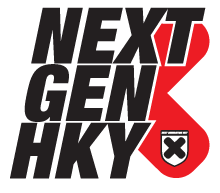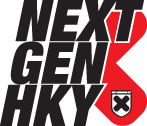Two Quebec coaches in the OHL: Interesting crop shock
BY: MARTIN LECLERC
*Original document translated using Google Translate
**Pour lire l'article original de Radio-Canada en français, cliquez ICI
It's not every day that one of the QMJHL's top coaches "moves west" and takes command of an Ontario Junior League team! For this reason, when André Tourigny accepted the position of head coach of the Ottawa 67's last summer, I remember immediately noticing this "event".
Finally! Someone could clearly compare the Quebec hockey system with that of the neighboring province. Ontario is not only the largest pool of hockey players in Canada. Its major junior league, the OHL, is also one of the most successful elite hockey leagues on the planet.
This season, 185 Ontarians have played at least one game in the NHL. That's almost as much as the number of hockey players developed by the United States (225). For its part, Quebec has seen 55 of its players treading the ice of the NHL this season.
Since his appointment at the head of 67's Ottawa, Tourigny has hired his old accomplice Mario Duhamel as an assistant. Since the mid-2000s, the two have worked together in the Rouyn-Noranda Huskies organization, in the Team Canada program and with the Colorado Avalanche, where they were part of the assistant staff with Patrick Roy.
André Tourigny was also Assistant Coach for the Ottawa Senators in 2015-2016. Last season, he was head coach of the Halifax Mooseheads. As for Duhamel, he was also head coach of the Drummondville Voltigeurs and, last season, the Gatineau Olympiques.
In short, here are two meticulous hockey men, credible and respected. They welcomed me to their TD Place office a few days ago, where we immersed ourselves in a fascinating discussion of the "cultural" differences between Ontario hockey and what we do in Quebec.
***
Is the league caliber of the Ontario Hockey League really higher than that of the QMJHL, or is it a myth put forward by recruiters?
"The answer to this question is simply mathematical. There are three times more players in Ontario than in Quebec (255,000 versus 96,000) and the OHL also holds territorial rights over more than one of twenty or so US states. In number, the Americans represent the equivalent of three teams in the OHL, not counting the Europeans (1) ", replies André Tourigny.
"In the QMJHL, a European player is a key member of a team. You can not build a winning team if you do not bet on a leading European. In Ontario? The European player is simply an asset that allows a team to improve but is not essential to success. "
In 2016, when the Rouyn-Noranda Huskies ended up in the Memorial Cup finals against the London Knights, many Quebec hockey fans were shocked to see how different the realities of the two leagues were. In addition to their 2 exceptional Europeans, the Ontario team had no less than 10 Americans! On this team, which ultimately won the national championship, Canadians were in the minority.
***
This season, the Ottawa 67's rank seventh in their division and flirt with the .500 mark. This very young and extremely promising team is starting a reconstruction cycle. In a league where 19-year-olds are kings and masters, the two oldest defensemen of the Ottawa 67's are 18-year-olds.
This reality did not prevent Tourigny and Duhamel from starting last fall at the beginning of their new team's training camp.
"I was immediately impressed by the way our fifth, sixth and seventh defensemen pulled the puck. We watched them go and asked where they could develop this skill, "says André Tourigny.
"All of our defensemen seemed to be able to play on the power play and shoot the puck at 100 miles an hour. We were surprised by that. And it's the same with our third and fourth line guys. They skate well, they pull the puck well and they are awesome. The depth is there, "he adds.
Yet, from the ranks pee-wee (12-13 years), the vast majority of Quebec's elite players are learning in Sport-studies programs that allow them to participate in four ice training sessions each week . In Ontario, Sport Studies programs do not exist and players are only allowed two training sessions per week with their team.
According to Tourigny and Duhamel, the big difference between Quebec and Ontario is precisely in these two days of training that Ontarians do not enjoy!
"To compensate for the absence of the third and fourth day of training, parents are hiring coaches specializing in skill development or power skating. We are not talking here about coaches hired by a college and enjoying job security. These highly specialized coaches must deliver the goods. If they do not, parents will look elsewhere. And if the coach does not have customers, he does not eat. The quality of the education offered is extremely high, "says André Tourigny.
***
By reading this commentary, many Sport-études program coaches or Quebec program leaders will probably jump out of their seats. "We also insist on developing the individual skills of our players! It's an integral part of our training plans! "
To this, Tourigny and Duhamel counter that there is a huge difference between "practicing skills" and "teaching skills".
"I do not consider myself a bad hockey guy," says Tourigny. For example, if I were sent to lead a pee-wee BB team in Saint-Bruno and was given the mandate to develop the skills of my players, I would do it. But I am not a professional in this area. My specialty is forming a team, establishing a culture, an identity and values. Then, I set a common goal, I teach my players to work together in a system and I motivate them so that they can offer the best performance possible. It's not the same job. "
"In Ottawa, we have a full-time Skill Coach (Derek Miller) on our staff. And every two weeks, other specialists of the same kind visit us and complete his teaching. When these guys talk to me, it's like Chinese. I am a competent hockey man. It is, however, a completely different art to dissect biomechanics with a gesture and to be able to explain to a player that he is not putting his hand in the right place on his stick, or that his center of gravity is poorly exploited. Teaching how to draw a puck is their job. "
The two coaches in Quebec believe that in Ontario there are hundreds of specialists who earn their living by teaching the individual skills of young hockey players.
"Right in the Ottawa area, there are six individuals or groups doing this full-time. Derek Miller alone teaches 1,600 young people in a year, "said Mario Duhamel.
This strong emphasis on the development of individual skills in Ontario is in line with those adopted by the Finnish and Swedish hockey federations, both of which have taken a major turn since the early 2000s. of these two European federations is based on maximizing the skills of hockey players before puberty.
***
The other side of this difference between the two Canadian provinces is that tactical education is much more advanced in Quebec.
"This is another aspect that quickly jumped to our eyes when Mario and I arrived in the OHL, explains André Tourigny. Attention to detail and control of collective or individual tactics such as the bearer approach or marking are better controlled by young Quebecers of the same age. "
"It's a big difference. Young people arriving in the QMJHL are prepared to comply with a gaming system because that's what they are taught in the Midget AAA League. And what I say is not negative. That's the reality, "adds Mario Duhamel.
"At the beginning of the season, we had to adjust to this reality. A simple example: how do we react in face-offs? It took us a good month to instill this phase of play to the team this year. Last year in the QMJHL it was settled after a week, "says Tourigny.
"And this is just one of many examples," adds Duhamel. Fortunately, we came across a good group of young people really eager to learn. Because we took them out of their comfort zone. "
The shift in the world of hockey towards the maximization of individual skills is major. André Tourigny finds it every day.
"NHL teams call me every week to let me know that their power skating specialist or skill specialist will come to work with a particular player. Other NHL organizations have specialists in the development of defenders, centers or wingers. We are entering an era of subspecialization. This is a fairly recent phenomenon. When I was in Colorado, we had no such specialist. And I'm not talking about 25 years ago. I was there in the mid-2010s, "says the 67's head coach.
To adopt this shift in Quebec, it will not be obvious.
"The first sports-education programs appeared something like 25 years ago, especially at the versatile De Mortagne. It has been great for Quebec hockey and it still is. School hockey is also gaining more and more ground in Quebec and that is also commendable. By cons, seeing what is done elsewhere, we realize that all this happens a little at the crossroads, "says Mario Duhamel.
"It's not enough to move young people four times a week. Programs must now consider how they can help their student-athletes move to the next level. "
There are very qualified specialists in teaching skills in Quebec. Sébastien Bordeleau, who works with players from the Laval Rocket and Collège Esther-Blondin (midget AAA), is a very good example. The Académie des Pros by Danny Groulx and Joël Perrault, on the South Shore, is another fine example.
"These guys, however, are underutilized compared to those who do the same job in Ontario. We even see specialists moving to Toronto because their services are not sufficiently in demand in Quebec, "notes André Tourigny.
At a time when Quebec hockey is trying to regain lost ground on the world stage, there are certainly good lessons to be learned from these observations.











